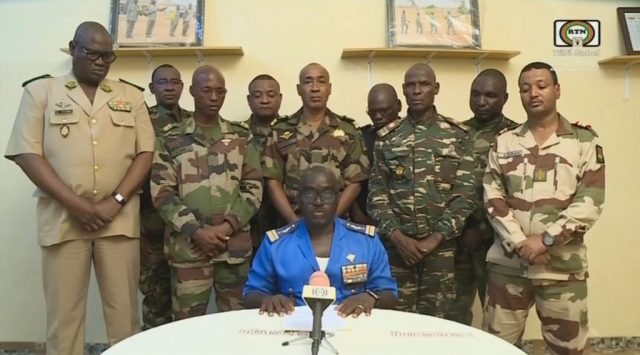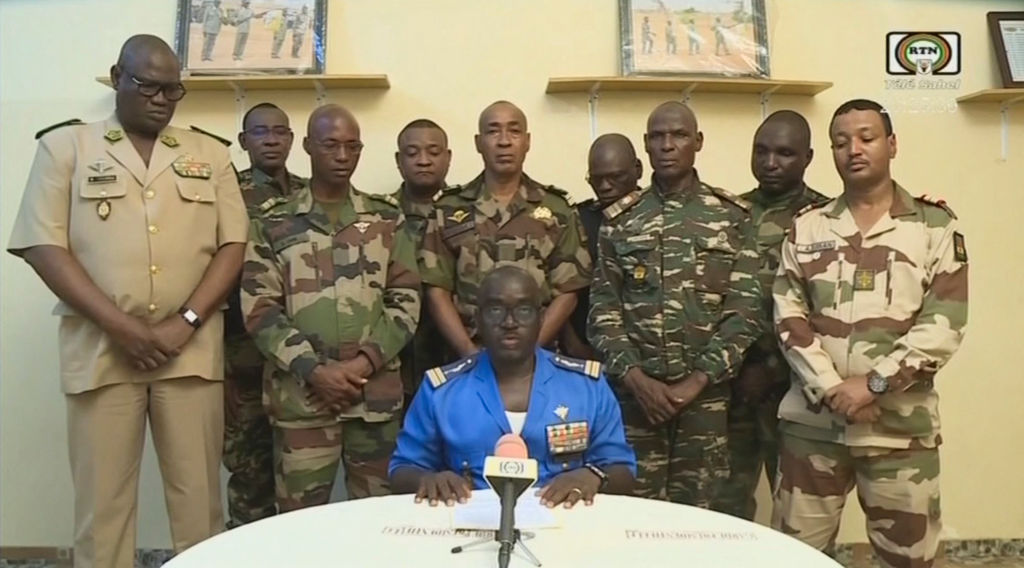

The coup in the African country has significant geopolitical implications.
On July 26, Niger entered a delicate phase of political instability due to a coup, which pitted President Mohamed Bazoum against Nigerien Army General Abdourahamane Tchiani. International alliances supporting the two contenders quickly emerged: France, the nation from which Niger gained independence over 60 years ago, immediately sided with Bazoum, suspending all economic and financial development aid to the country. In response, Nigerien protesters rallied against the French, brandishing anti-Macron signs and Russian flags.
The European Union, the United States, and the Economic Community of West African States (ECOWAS) swiftly intervened to cut funds to Niger, aiming to plunge the rebels into absolute poverty. This move is not only motivated by political reasons but also aligns with the broader strategy of the West. Niger, being a pivotal state for Western projects in Africa, has become the latest theater of the West-East power struggle.
Examining the country’s significance, Niger serves as a critical crossroads for migration flows toward the Mediterranean. For instance, Agadez represents the last city before entering the Sahara, which is traversed on foot by migrants from Gambia, Liberia, Senegal, Nigeria, and the Ivory Coast, to name a few. These migrants take advantage of the free movement area guaranteed by ECOWAS to enter Niger and then disappear into the Sahara, only to reappear in Libya and eventually reach the shores of the Mediterranean.
The migration network along the Niger-Libya route is managed by a system entrenched among tribes that secure the corridor, often exploiting widespread corruption among state officials and the military. Some sources report that migrant trafficking is the primary source of income in Northern Niger, significantly reducing unemployment rates. Closing this route would force migrants into the hands of highly specialized criminal or terrorist networks, which manage the two alternative routes through Mali and Sudan.
Beyond humanitarian concerns, Niger possesses rich natural resources, making it one of the world’s leading uranium exporters. This has drawn considerable interest from all involved parties, both to bolster military armament and to increase energy production through nuclear means. The situation has undoubtedly attracted Russia, which has capitalized on the strong anti-French sentiment in the region, reinforced by the growing presence of jihadist movements, to position itself as an alternative partner.
It is no coincidence that several ECOWAS countries have experienced instability in recent years: Mali witnessed two coups in less than a year (in 2020 and 2021), Burkina Faso had particularly violent coup phases in January and September 2022, Sudan experienced the overthrow and coexistence of two Heads of State in 2021 and 2023, and there was a coup in Guinea in 2021. In many of these situations, the Russians have sought to intervene—often through the infamous “Wagner Group”—to establish Moscow-aligned governments, thereby paving the way for Beijing to gain a foothold in Africa.
China plays a delicate game in Africa. For instance, the country’s sole military base outside its borders is located in Djibouti, a small African state with access to the sea, bordered by Eritrea, Ethiopia, and Somalia. Here, the Chinese are essentially seeking to build a naval base and a potential spaceport to become credible partners for other African states.
The situation in Niger remains highly ambiguous for many players. Dimitri Peskov, the Kremlin’s spokesperson, declared the restoration of constitutional order desirable, distancing himself from the coup plotters. French Foreign Minister Catherine Colonna reiterated that France would not intervene militarily in the coup. Meanwhile, Mali and Burkina Faso have made it clear that any military intervention in Niger would be viewed as a declaration of war against them.
The sub-Saharan Western theater is undoubtedly a new battleground where Europe and the West must play an intelligent game. On one hand, they must prevent Russia and China from establishing a stable presence in these territories; on the other hand, they must progressively grant more freedom to the countries involved to avoid bolstering anti-Western sentiments and the radicalization of jihadists. This is a challenging situation that requires careful monitoring.



 Subscribe
Subscribe